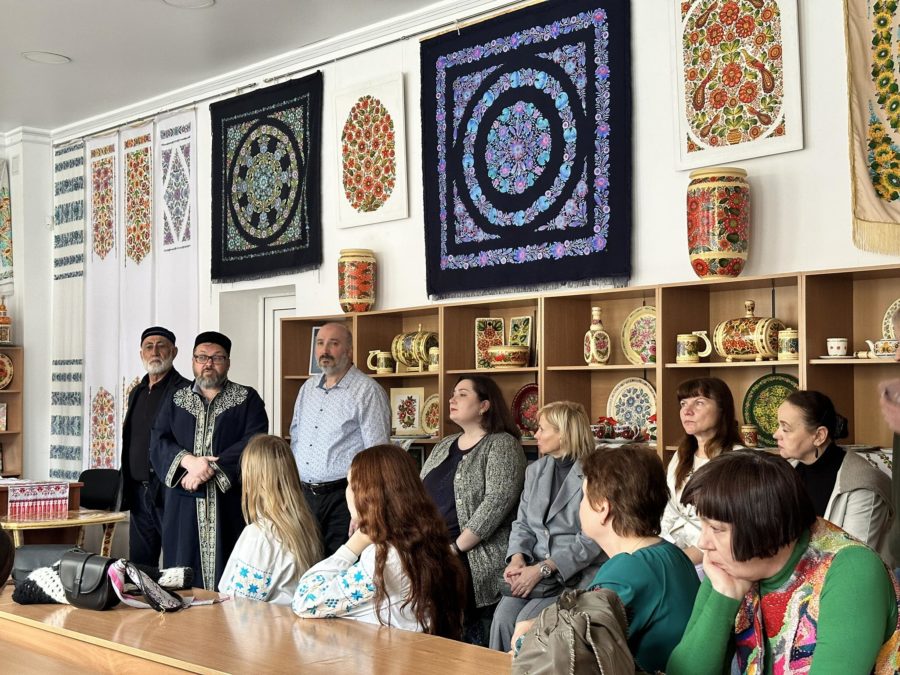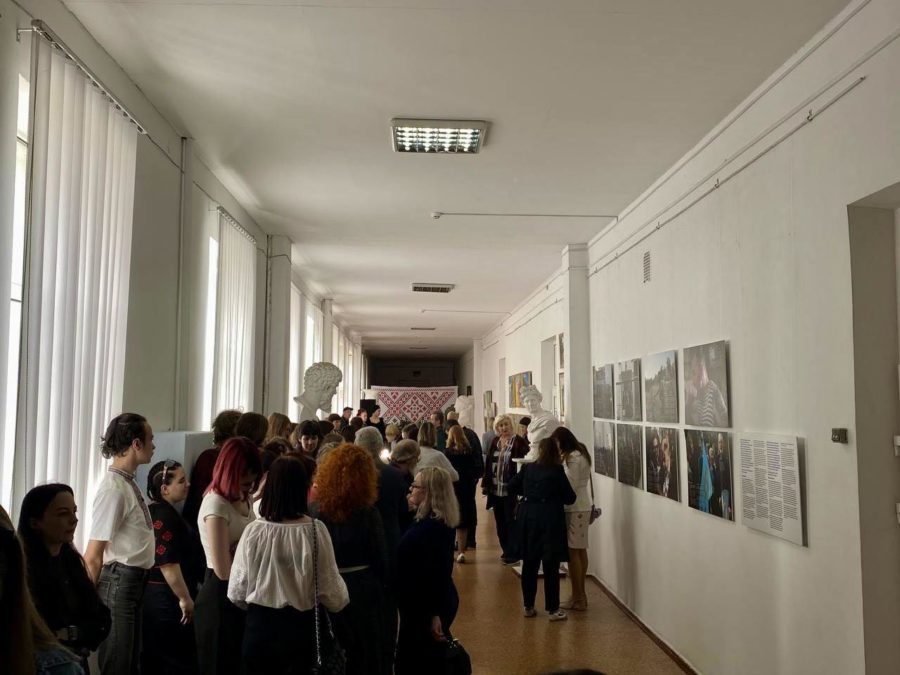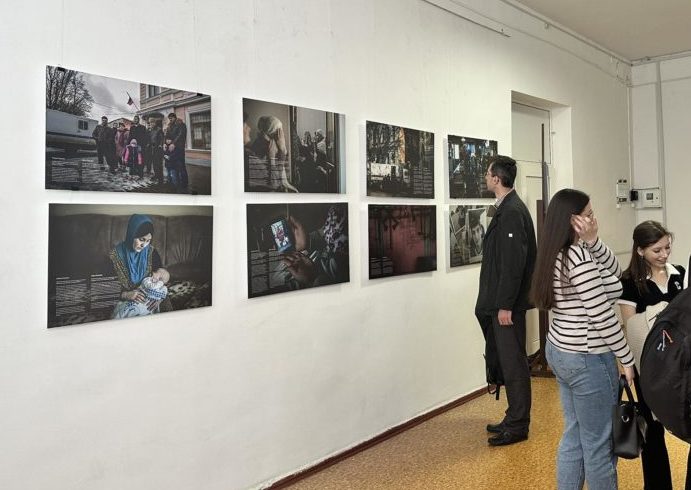Exhibition “Stories from the occupied Crimea” was presented in Dnipro and will run until the end of June
On 17 May, an event dedicated to the Day of Remembrance of the Victims of the Crimean Tatar Genocide was held at the Dnipro Art College in the city of Dnipro. In addition, during the event, the exhibition “Stories from the Occupied Crimea”, presented by Human Rights Centre ZMINA was opened.

The event was attended by representatives of local authorities, the Crimean Tatar community of Dnipro and educators.
As the representatives of the college noted during the opening of the event, Russia has been carrying out enforced disappearances and illegal detentions of residents of the annexed Crimea for the entire ten years of occupation. Some political prisoners have even served their full 8-9 year sentences and returned home. In such circumstances, the commemoration of the victims of the deportation of the Crimean Tatar people at the national level and the demonstration of solidarity in the struggle for the restoration of rights becomes important for Ukraine and the world.

The authors of the photo exhibition “Stories from the Occupied Crimea” – Ukrainian photojournalists Alina Smutko, Alona Savchuk and Taras Ibrahimov have been documenting the life of Crimean Tatars under occupation for several years. As a result, they were prohibited from entering the territory of the Crimean peninsula and the Russian Federation for a period of 10 to 35 years.
“The authors found the courage to go to Crimea and record everything that happens to Crimean Tatars and their families. Just like 80 years ago, today Crimean Tatars continue to face repression by the occupation authorities. Currently, 218 Ukrainian citizens are illegally imprisoned in Crimea and in the Russian Federation, 133 of whom are Crimean Tatars. Most of them are held in rather harsh and inhumane conditions in places of detention, they are tortured, kept in punishment cells and solitary confinement, and are not provided with medical care”, said Viktoria Nesterenko, the project manager of Human Rights Centre ZMINA.

Also, according to her, ZMINA is constantly in touch with many relatives of political prisoners:
“Knowing their stories, I am always amazed at the resilience and strength of these women – their mothers, wives, daughters and sisters. That is why we, together with the Mission of the President of Ukraine in the Autonomous Republic of Crimea, have launched a letter-writing campaign to political prisoners to support them, and we call on everyone to join in”.
The exhibition can be visited until the end of June 2024 at the address: Uspenska Square 14, Dnipro (the building of the art department of the college).
If you have found a spelling error, please, notify us by selecting that text and pressing Ctrl+Enter.















